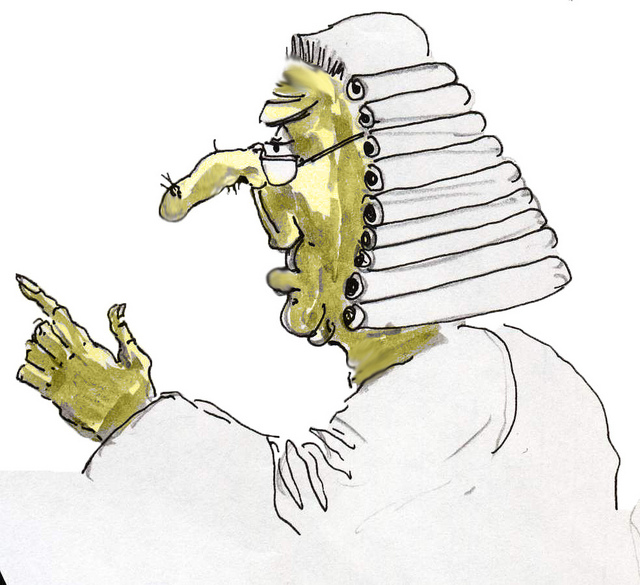Growing up, I judged people frequently—with no awareness I was doing so, or that there was anything wrong with it.
I thought girls in high school who slept around were insecure and making fools of themselves because guys looked down on girls who were easy. I felt good about myself because I didn’t feel a desperate need for male attention.
I saw adults struggling with addiction, mental illness, divorce and general unhappiness, and I thought they were doing something wrong because I believed if you were a good person who made good decisions, then you would have a good life.
But then depression and anxiety were making intermittent appearances by my mid-20s when things became stressful, and I drove myself crazy trying to figure out why. Was I drinking too much? Was I too selfish? Was I not religious enough?
I thought that I must have done something wrong to feel this way.
I have been a practicing therapist for about five years now. I have heard stories of rape, sexual abuse at the hand of one’s parents, emotional abuse that has brainwashed its’ victim until they lost their identity, children who found a loved one dead from suicide and other stories that break your heart.
As you can imagine these traumas will materialize in some way in our lives. Maybe we become depressed and shrink from life. Maybe we become anxious and fearful of the world, believing it to be a scary place. Maybe we become manic, desperate for love and attention. Maybe we become mean, punishing everyone for the pain we experienced. Maybe we become hyperactive, needing a release. Maybe we become addicted to numbing the pain through alcohol, drugs, work, sex or dysfunctional relationships.
I’ve learned that it’s not merely our life decisions that dictate our mental health or our current life situation, but instead it’s a complex equation including multiple variables such as genetics, biology, the way you were raised, internalized beliefs, subconscious and conscious thought patterns, trauma history and the way we choose to live our life (this would include decisions we make regarding relationships, diet, exercise and so forth).
When I started doing therapy I had people say things to me like, “I think mental illness happens because people don’t know how to deal with stress,” and one of my favorites, “I think it’s because of all the junk food they eat. Have you seen all the processed foods and sugar they eat?”
Who does they even refer to? Those who don’t have perfect mental health and seek treatment? People who aren’t perfectly happy all the time?
Cut to me sighing and massaging my temples to relieve the forming headache.
It’s easier to judge than it is to understand.
I have learned you cannot reduce a person’s life journey, past experience and current situation to their eating habits or stress management skills. Nor can you reduce it to their religiosity, number of sexual partners or drug and alcohol use. Is it part of the equation? Yes. But it’s one part of a much larger story, and while telling ourselves that those with mental illness, addiction and other struggles are responsible for their own problems may help us sleep at night, it’s simply fiction.
The reason you and I do this is because it’s another way of coping with trauma. Instead of reaching for a drink or chasing a dysfunctional relationship we seek to distort reality in order to avoid feelings of anxiety, depression, low self-worth, unacceptable impulses or traits and emotional pain.
It’s a defense mechanism.
Think of the closeted homosexual who shames openly gay people, or the dogmatic religious person who finds their own worth in how holy they are but looks down on those who they deem morally unfit.
While defense mechanisms can be successful for the person implementing them for an amount of time, it is often extremely harmful to those being judged because it shames people courageous enough to show vulnerability and face their issues.
And what is so terrible about that? What is so terrible about opening our wounds and letting them bleed so we can heal? What is so terrible about facing our insecurities so that we can make peace with yourself? What is so terrible about breaking down every now and then so that we can rebuild into something stronger, more beautiful and complex? What is so terrible about admitting we are weak and asking for help?
I find so much beauty now in raw, honest, brazen, uncontrolled, brokenness.
Now I see vulnerability, release and falling into the unknown as an indicator of wellness and living a life of depth and purpose. This is the gift of laying our judge to rest.
~
Author: Sarah McInerney
Image: Robin Hutton // Flickr
Editors: Sarah Kolkka; Emily Bartran
~
Relephant Read:







Read 5 comments and reply